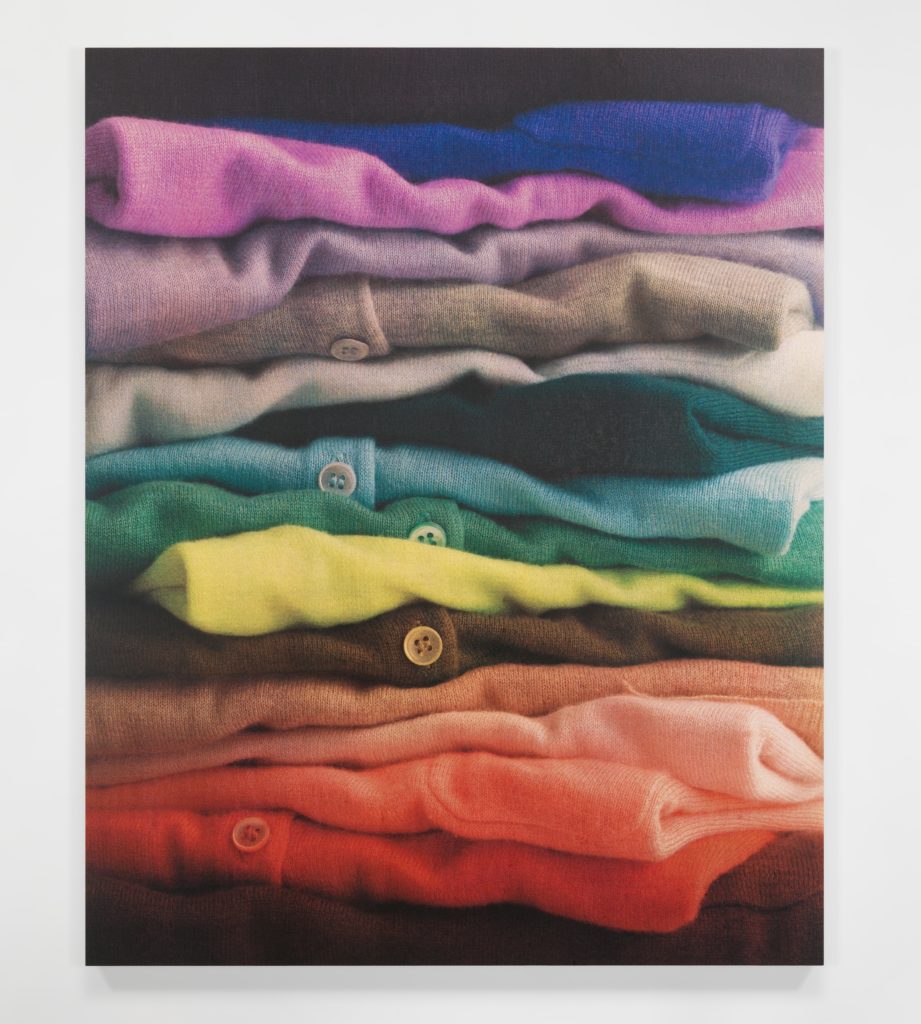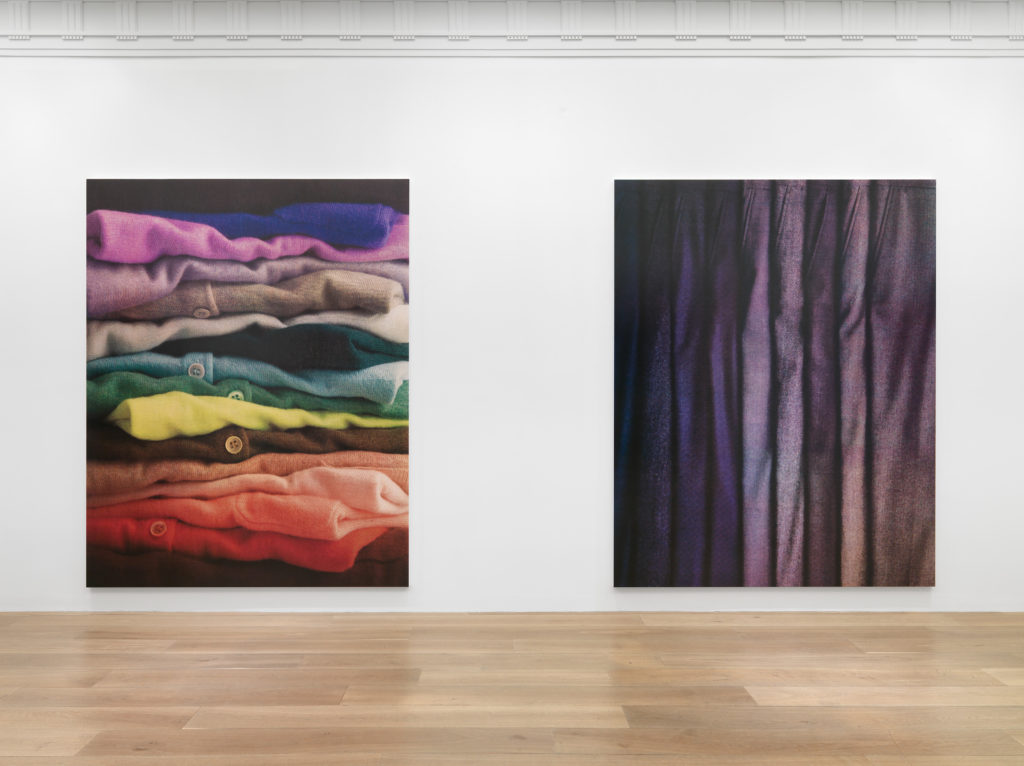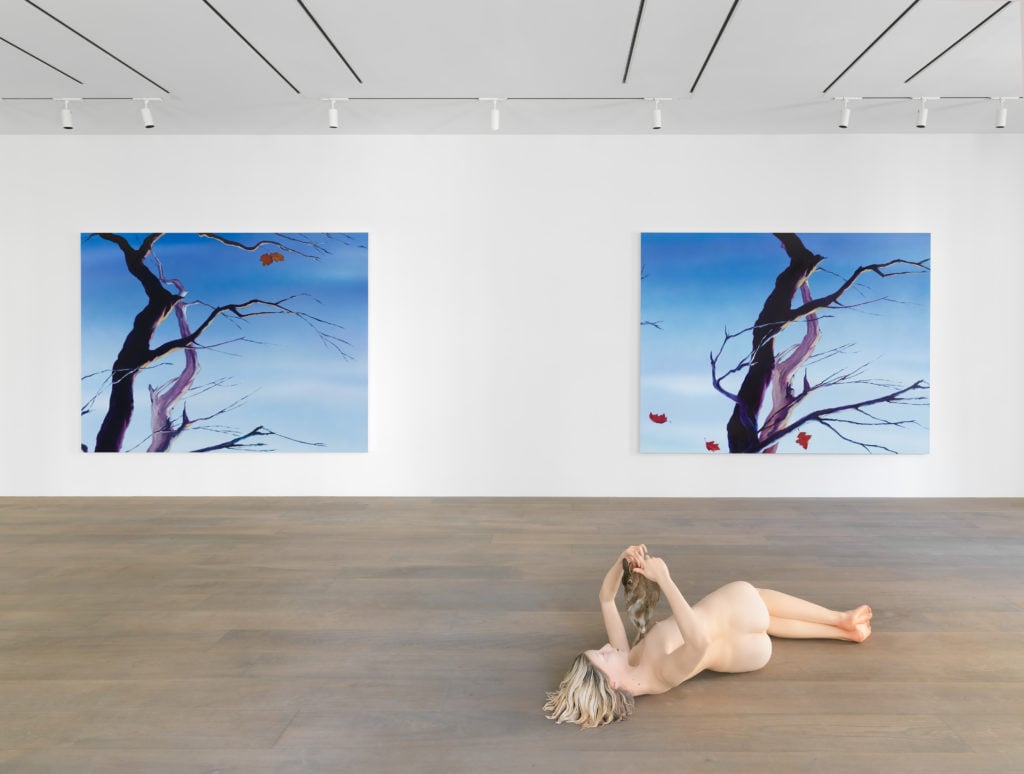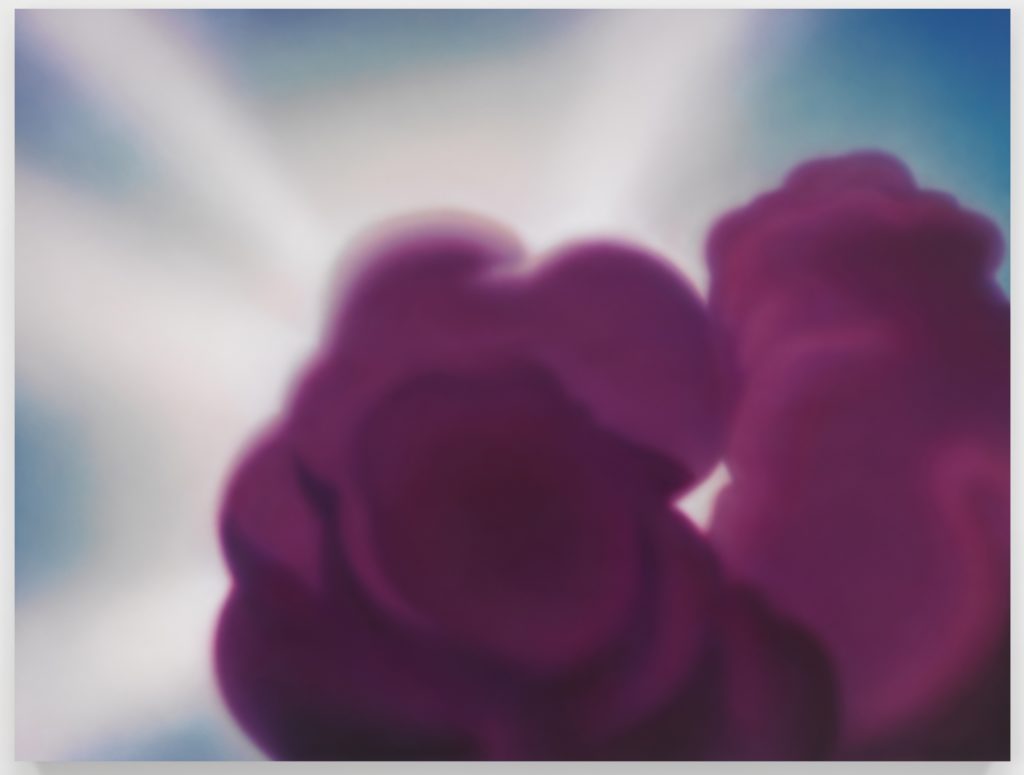On View
See How Dan Colen Tackles the Anxieties of Adulthood and Mail-Order Catalogues in His Comeback Show at Lévy Gorvy
"Mailorder Mother Purgatory" explores a post-bad boy Colen grappling with domesticity.

"Mailorder Mother Purgatory" explores a post-bad boy Colen grappling with domesticity.

Caroline Goldstein

A lot has changed in the years since Dan Colen’s meteoric rise in the downtown New York art scene of the mid-aughts. Alongside the late Dash Snow and photographer Ryan McGinley, Colen was one-third of a cool-kid art triumvirate dubbed “Warhol’s Children” by New York Magazine, whose version of the Factory was a hotel room filled with shredded phone books and lots of drugs.
But after Snow died of an overdose in 2009, Colen’s art became an extended and romanticized version of his mourning—which ultimately led him to leave the city, get sober, and start over at a farm upstate. Now, a new show at Lévy Gorvy—his first since joining the gallery last spring—explores the post-bad boy Dan Colen, showcasing a wizened artist steeped more in the anxieties of adulthood than pharmaceuticals.
“Dan Colen: Mailorder Mother Purgatory” takes up all three floors of Lévy Gorvy’s Upper East Side gallery, each level serving as a kind of chapter in the exhibition’s story arc. The show opens with the “Mailorder” series, images appropriated from catalogs that appear to be lifted from the Jenna Lyons era at J.Crew. The wall-size images show stacks of kaleidoscopic cashmere sweaters, corduroys, and printed button-down shirts. Colen created the works by silkscreening oil-based enamel onto linen canvases, a way of replicating the CMYK printing process that created the originals.

Installation view of “Dan Colen: Mailorder Mother Purgatory” at Lévy Gorvy. Courtesy of Lévy Gorvy, photo: Tim Nighswander.
The works grew out of the artist’s anxieties about domesticity and adulthood, which he says hit him “like a ton of bricks” after moving to a farm in upstate New York. “I had never owned anything prior to this…clothes, a mattress, a spoon, yeah, but I had no property worth caring about or considering,” he says in an interview for the show’s catalogue. “[T]he relentless arrivals of the mail-order catalogues and their continued presence, no matter how quickly I threw them away, exacerbated and eventually represented my growing anxiety. Yet they also held a seduction over me because the lives depicted seemed so resolved, while mine felt totally in shambles.”
On the next floor, a sculpture of a supine naked woman lays on the floor while holding a taxidermied rabbit to her chest. Modeled after the artist’s ex-girlfriend, she is made of steel and painted a creamy peach color. On the walls hang a series of paintings titled “Mother” and inspired by the cartoonish landscapes from Disney’s Bambi, a not-so-subtle reference to maternal loss. Each canvas is a discrete animation frame, with few changes from one to the next: a few leaves swirling around a bare tree branch, shifting clouds in the background.

Installation view of “Dan Colen: Mailorder Mother Purgatory” at Lévy Gorvy. Courtesy of Lévy Gorvy, photo: Tim Nighswander.
The final floor contains works from the “Purgatory” series, abstract paintings of magenta and bright blue with hazy edges and bleeding lines. In contrast to the first two floors, the paintings are devoid of any obvious subject matter. The personal experiences that inform the “Mailorder” and “Mother” series give way instead to experiments in light and color. “Purgatory is really the grave,” Colen says in the catalogue. “It’s a story about descending, but I’m presenting it as an ascension.”

Dan Colen’s Purgatory 1030 (2017–2018). © Dan Colen, 2018. Courtesy of Lévy Gorvy, photo: Tim Nighswander.
“Dan Colen: Mailorder Mother Purgatory” is on view through June 23 at Lévy Gorvy, 909 Madison Avenue.